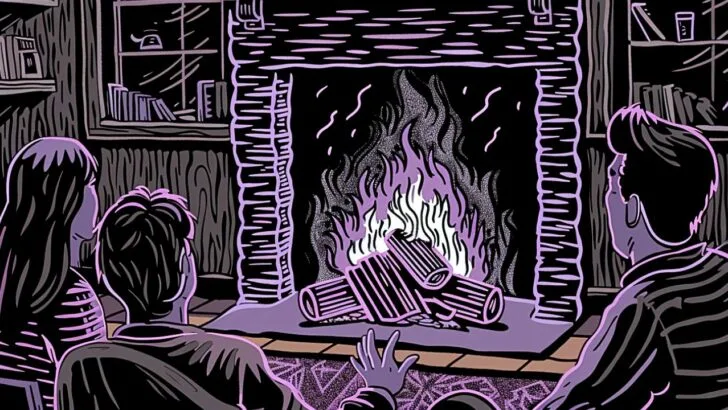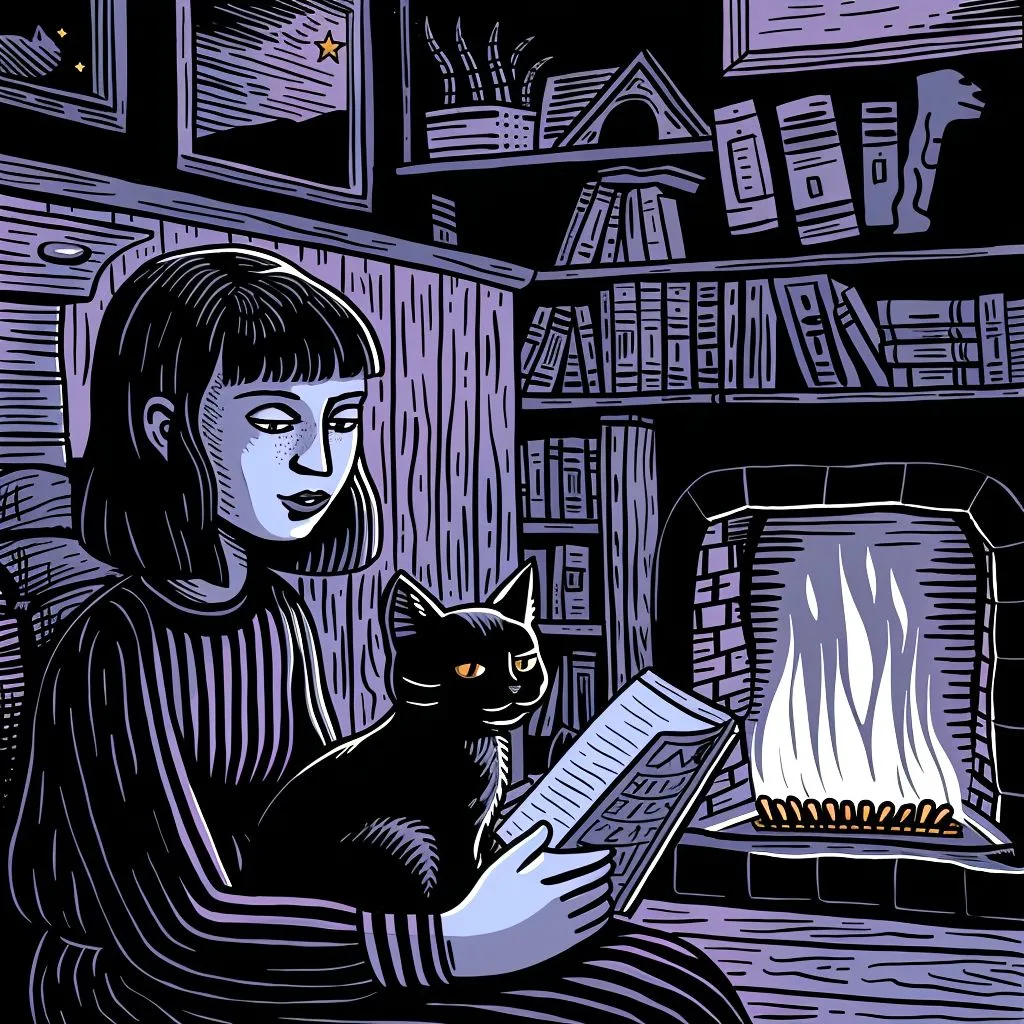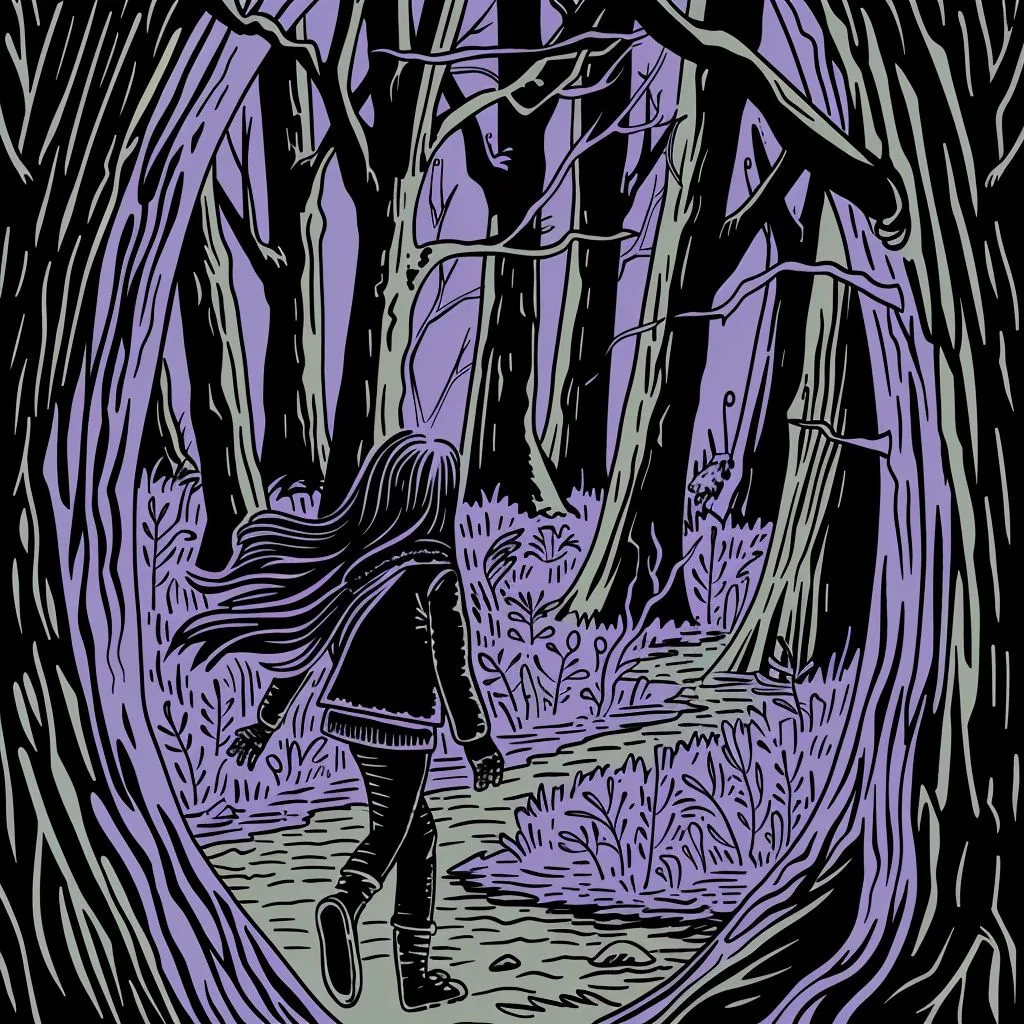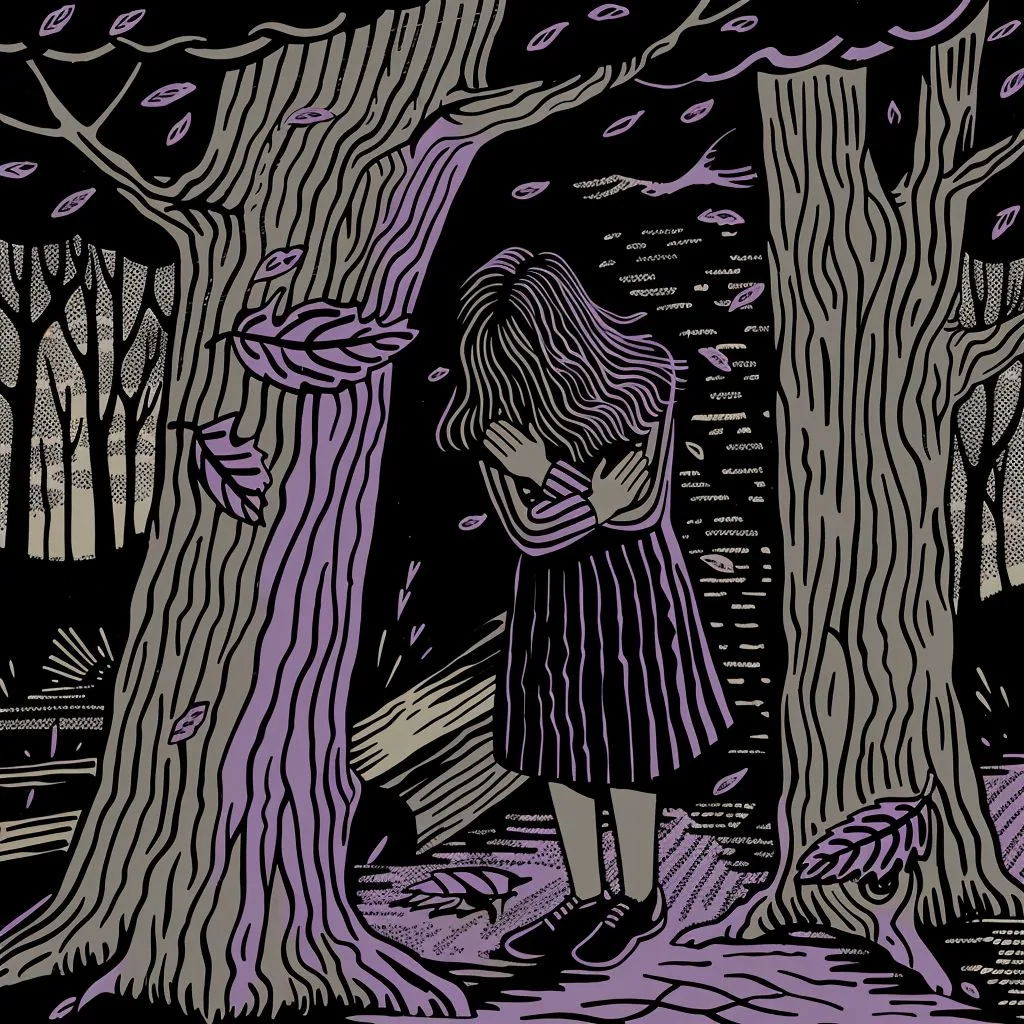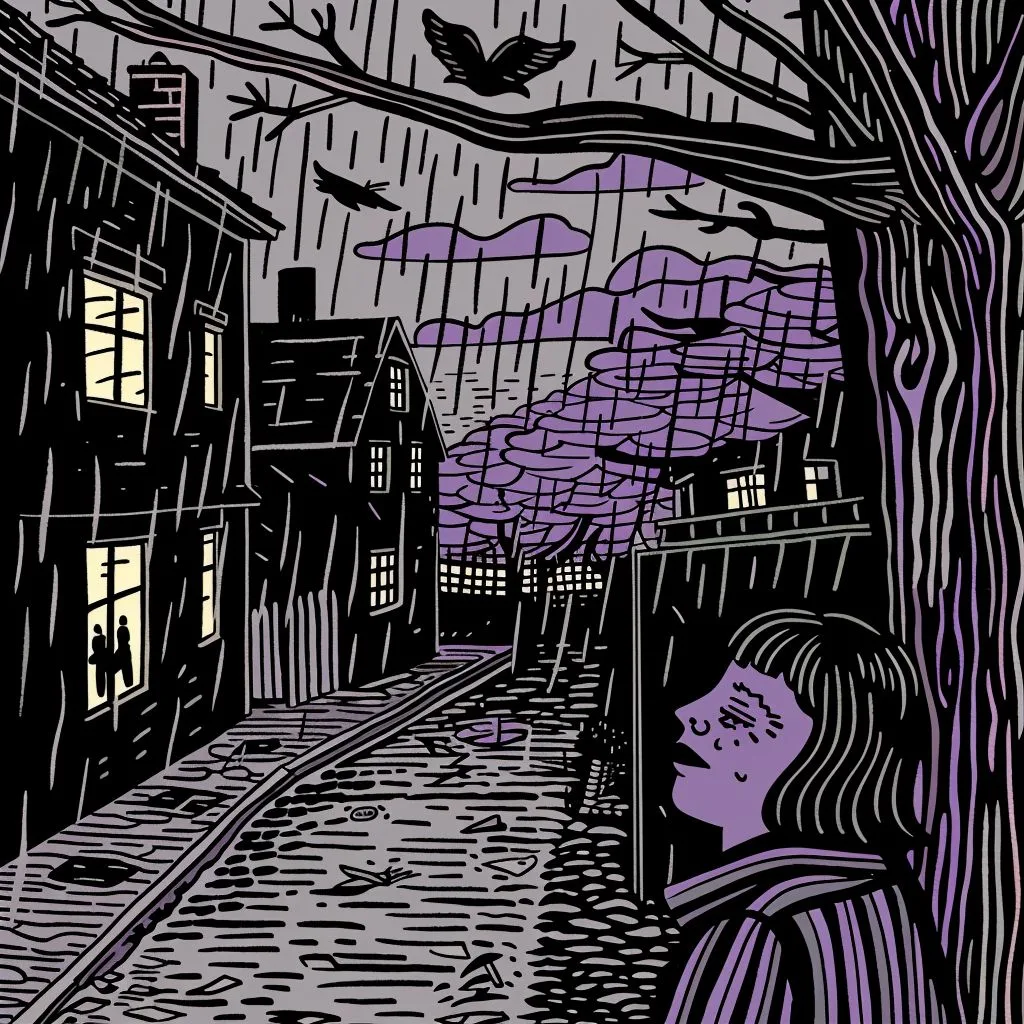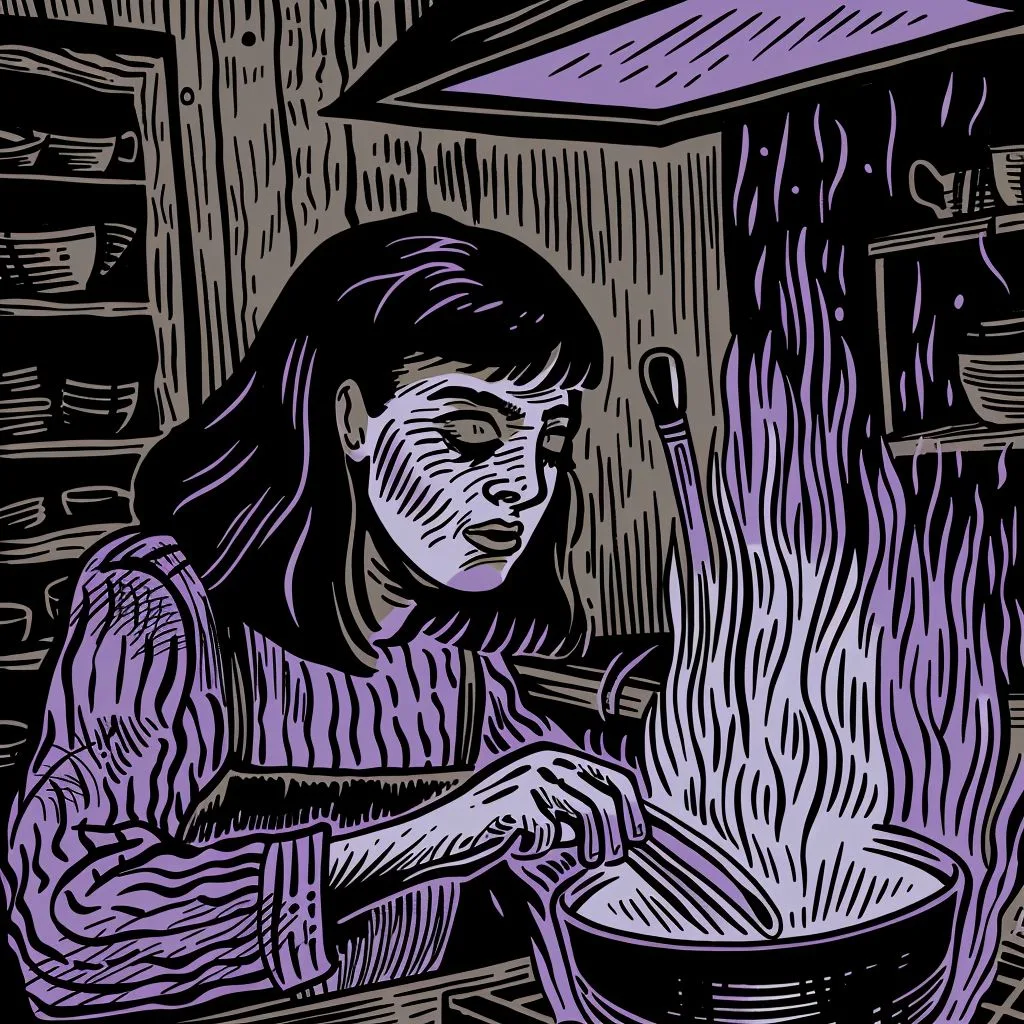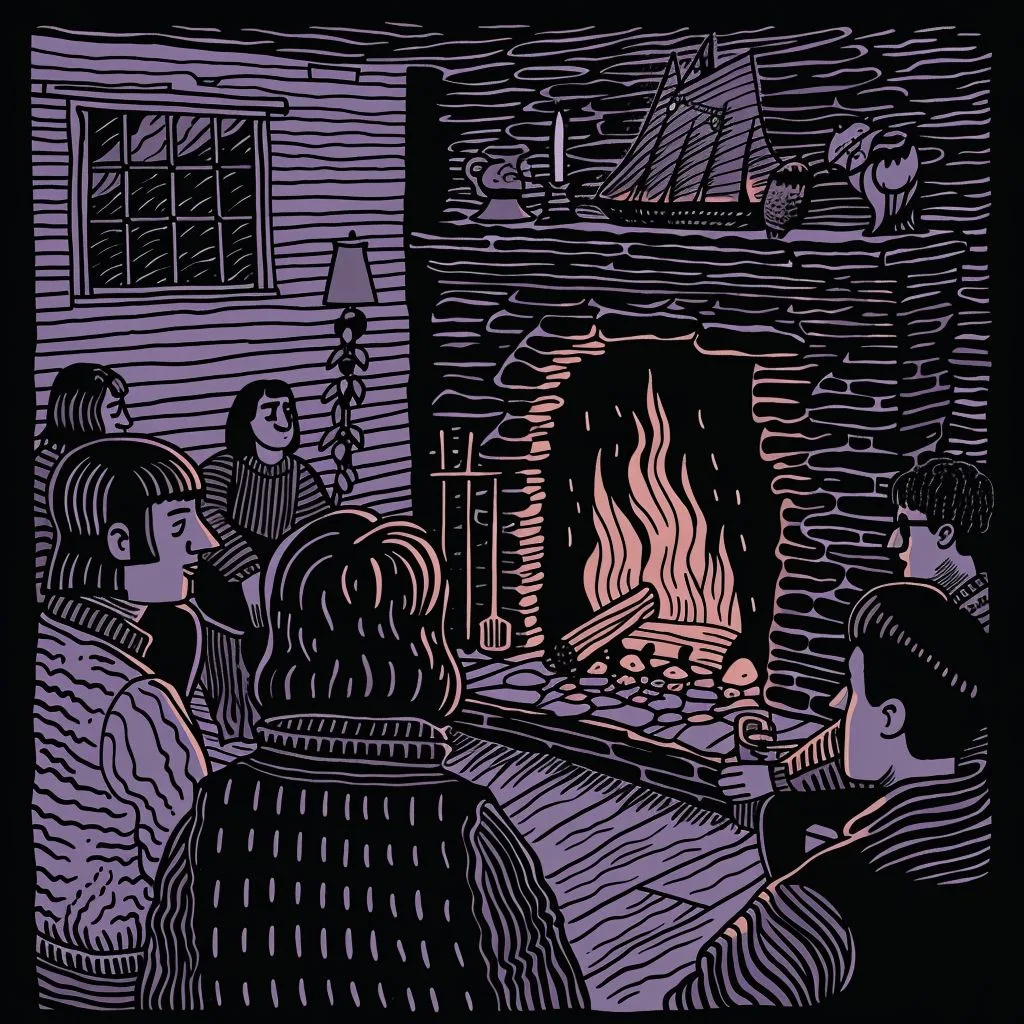In the vast expanse of language, there lie hidden gems—words so rare and beautiful they illuminate the corners of our experience often left in the shadows.
These words, with their unique sounds and meanings, offer a kaleidoscope through which we view the world, transforming the mundane into the extraordinary.
They remind us that language is not just a tool for communication but a form of art, capable of capturing the most nuanced of human emotions and the most ephemeral moments in nature.
This article embarks on a journey through 30 such words, each a window into the soul of the cultures and languages from which they originate.
From the nostalgic longing evoked by “saudade” to the serene beauty of “komorebi,” these terms invite us to explore the uncharted territories of our vocabulary, enriching our conversations and writings with the colors of the unseen and the unspoken.
Join us as we traverse this linguistic landscape, uncovering the profound power words hold to enchant, to console, and to illuminate the world around us.
1. Eunoia
The word “eunoia” comes from the Greek word εὔνοια, meaning “well mind” or “beautiful thinking.”
It is the shortest English word containing all five main vowel graphemes.
In literature and rhetoric, eunoia refers to the goodwill a speaker cultivates between themselves and their audience, a condition of receptivity.
It’s often used to describe a state of harmony and understanding in communication, where the speaker’s intent is aligned with the listener’s comprehension, fostering a positive and productive interaction.
Sample Sentence: “Through her eunoia, the novelist forged a profound connection with her readers, making her storytelling not just compelling but also a shared journey of discovery.”
2. Selcouth
Selcouth is derived from an old English word meaning “strange” or “uncommon,” and it has come to embody the sense of something being both unfamiliar and marvelous at the same time.
It captures the essence of encountering something so extraordinary it feels almost magical, highlighting the beauty in the unknown or the rarely seen.
This word invites us to appreciate the unusual and the extraordinary that lie just beyond the bounds of our everyday experiences.
Sample Sentence: “Walking through the ancient forest, she experienced a sense of selcouth wonder, as if stepping into a world untouched by time, where every leaf and shadow told an untold story.”
3. Zephyr
The term “zephyr” originates from the Greek god Zephyrus, who was considered the personification of the west wind and known for bringing light spring and early summer breezes.
It has come to signify any soft, gentle breeze, evoking a sense of calm, ease, and refreshment in the natural world.
Zephyr captures the essence of those fleeting, perfect moments when the air itself seems to bring peace and rejuvenation.
Sample Sentence: “As the sun set, a gentle zephyr whispered through the trees, carrying with it the promise of a cool, peaceful evening after the day’s heat.”
4. Petrichor
Petrichor is a term coined in the 1960s from the Greek words “petra,” meaning stone, and “ichor,” the fluid that flows in the veins of the gods in Greek mythology.
It describes the distinct, pleasant smell that accompanies the first rain after a long period of warm, dry weather.
This scent is caused by the release of certain compounds when rainwater comes into contact with the earth.
Petrichor captures not just a sensory experience but also often evokes a sense of renewal and nostalgia.
Sample Sentence: “After months of drought, the first rain brought with it the sweet smell of petrichor, bathing the parched land in a fragrance that spoke of hope and new beginnings.”
5. Serendipity
Serendipity was coined by Horace Walpole in the 18th century, drawing inspiration from the Persian fairy tale “The Three Princes of Serendip.”
The tale’s protagonists frequently stumbled upon unexpected discoveries, not through deliberate search but through accidental and wise observation.
It embodies the phenomenon of finding valuable or agreeable things not sought for, highlighting the beauty of unexpected discoveries and fortunate accidents that enrich life beyond the scope of our immediate goals or efforts.
Sample Sentence: “Finding an old, forgotten letter tucked away in a book at the library was pure serendipity, reconnecting her with a cherished friend from her past.”
6. Limerence
Limerence was conceptualized by psychologist Dorothy Tennov in the late 20th century, defining the intense and involuntary state of infatuation or obsession with another person.
It is characterized by a strong desire for the reciprocation of one’s feelings, though it is not necessarily driven by physical attraction.
This concept captures the overwhelming emotional experience of being in love, where the object of affection occupies nearly every thought, and where the emotional highs and lows associated with their attention or lack thereof dominate one’s feelings.
Sample Sentence: “Caught in the throes of limerence, he found himself daydreaming about her smile and seeking out the slightest sign of her affection, each encounter sending his heart into a flurry of hope and fear.”
7. Hiraeth
Hiraeth is a Welsh word with no direct English translation, evoking a deep sense of longing for a home or homeland that is lost and cannot be returned to, or perhaps a longing for a time, place, or person that is beyond reach.
It embodies a blend of nostalgia, yearning, and sadness for the lost or unattainable, yet it also carries a profound sense of connection and belonging that transcends physical space or time.
Sample Sentence: “Standing on the cliff’s edge, overlooking the vast sea, she was filled with hiraeth for the ancestral home she had never seen, a place alive in stories but lost to time.”
8. Sonder
Sonder is a contemporary term that has emerged from the digital age, particularly from The Dictionary of Obscure Sorrows, which invents new words to give shape to complex emotional states.
It describes the profound realization that each random passerby is living a life as vivid and complex as your own, populated with their own ambitions, friends, routines, worries, and inherited craziness.
This realization can evoke a deep sense of the interconnectedness of all human lives, underscoring the rich tapestry of narratives that weave through the fabric of everyday existence.
Sample Sentence: “As she sat watching the bustling city streets below, a sense of sonder washed over her, reminding her that every person in the crowd below had their own story, their own personal dramas and triumphs.”
9. Vellichor
Vellichor is another word conceived by John Koenig for his project, The Dictionary of Obscure Sorrows.
It’s defined as the strange wistfulness of used bookstores, which are filled with once-beloved books that now sit forgotten, carrying the stories and memories of their previous owners.
This word evokes the melancholy and beauty of the passage of time, as well as the sense of potential and the myriad of narratives waiting to be discovered or remembered within the pages of these books.
Sample Sentence: “Walking through the aisles, she was enveloped in vellichor, each book a whisper from the past, inviting her into a world of forgotten tales and dreams.”
10. Apricity
Apricity is a term from the 17th century that has recently been rediscovered and embraced for its specific meaning: the warmth of the sun in winter.
It captures that delightful sensation of feeling the sun’s rays on your skin on a cold day, providing a gentle warmth and light that contrasts with the chill of the surrounding air.
Apricity reflects a moment of comfort and serenity amid the harshness of winter, reminding us of the sun’s power to bring warmth and joy even in the coldest seasons.
Sample Sentence: “Even in the depth of winter, the apricity that came with a sunny day had the power to lift spirits and thaw the chill in the air, reminding everyone of the spring to come.”
11. Nefelibata
Derived from Portuguese, “nefelibata” combines “nephele” (cloud) and “bata” (walker), essentially meaning “cloud walker.”
It describes someone who lives in the clouds of their own imagination or dreams, or one who does not obey the conventions of society, literature, or art.
Nefelibata captures the essence of individuality and creativity, celebrating those who wander through their thoughts and visions, unconstrained by societal norms and expectations.
Sample Sentence: “An artist and a true nefelibata, she painted worlds born of her imagination, places that defied the rules of physics, inviting the viewer to leave their disbelief behind and walk among the clouds with her.”
12. Phosphenes
Phosphenes are the phenomenon of seeing light without light actually entering the eye, such as the colors and patterns you see when you close your eyes tightly or rub them.
This term derives from the Greek words “phos” (light) and “phainein” (to show), literally meaning “to show light.”
Phosphenes symbolize the body’s ability to create perceptions of light and color from within, highlighting the mind’s power to generate sensory experiences in the absence of external stimuli.
Sample Sentence: “In the quiet darkness of her room, she pressed gently against her eyelids, marveling at the phosphenes that danced before her, a personal aurora of vibrant colors and shapes.”
13. Gossamer
Gossamer refers to the fine, filmy substance consisting of cobwebs spun by small spiders, often seen in the grass or floating in the air in calm weather, especially in autumn.
This word can also be used more broadly to describe anything very light, thin, and delicate, including fabric, mist, or even the most ethereal ideas.
Visually, gossamer evokes images of morning dew caught on spider webs, creating a delicate lattice that captures the early light, or the fragile beauty of a misty landscape veiled in a whisper-thin fog.
Sample Sentence: “As the dawn broke, the meadow was transformed into a magical landscape, each blade of grass adorned with gossamer threads, turning the field into a tapestry woven from the lightest silk.”
14. Yugen
Yugen is a concept from Japanese aesthetics that suggests a deep, profound grace and a subtle mystery that’s too vast for words.
It’s about the beauty of the universe that evokes an emotional response so intense that it can’t be fully expressed.
Yugen goes beyond what can be seen or explained, touching on the ineffable beauty of the natural world and the bittersweet awareness of the impermanence of all things.
This word captures the feeling of seeing the sun set behind a flower-clad hill, knowing that the moment is fleeting, yet feeling deeply connected to the eternal beauty of the world.
Sample Sentence: “Watching the delicate snowflakes drift silently in the moonlight, she felt a sense of yugen, a profound awareness of the universe’s beauty and its unfathomable mysteries.”
15. Komorebi
Komorebi is a Japanese word that describes the sunlight filtering through the leaves of trees, creating a dance of light and shadow on the ground below.
This term beautifully captures a simple, yet picturesque moment in nature that combines light, trees, and a serene atmosphere, evoking feelings of tranquility and a deep connection to the natural world.
It reflects the interplay between light and life, reminding us of the delicate balance and beauty that exists in everyday moments.
Sample Sentence: “The forest was alive with komorebi, the sunlight creating patterns on the forest floor that invited her to pause and appreciate the quiet beauty of the moment.”
16. Saudade
Saudade is a Portuguese word with no direct translation in English, conveying a deep, emotional state of nostalgic longing for something or someone that one has loved and lost.
It’s a blend of sadness and happiness, a yearning for what was once there but is no more, possibly never to return.
Saudade reflects the feelings of missing something so deeply that it’s almost a presence in itself, a desire for the presence or return of a feeling, person, place, or experience that is absent.
Sample Sentence: “As she listened to the old song, a wave of saudade washed over her, filling her heart with both the joy of cherished memories and the sorrow of their loss.”
17. Waldeinsamkeit
Waldeinsamkeit is a German word that combines “Wald” (forest) and “Einsamkeit” (loneliness or solitude), describing the feeling of being alone in the woods, which can be a profound, almost spiritual experience of solitude and connection with nature.
It embodies the serene, reflective state one finds in the quiet and isolation of the natural world, away from the bustle of urban life.
This concept emphasizes the peace and clarity that can come from solitude, particularly in the nurturing embrace of a forest.
Sample Sentence: “In the embrace of the ancient trees, surrounded by whispers of leaves and the soft earth underfoot, he found a sense of waldeinsamkeit that soothed his weary soul.”
18. Toska
Toska is a Russian word that Vladimir Nabokov famously described as incapable of being fully translated into English, conveying a sensation of great spiritual anguish, often without any specific cause.
It encompasses a range of feelings from mild sadness to profound despair, a deep pining for something indefinable and the intense restlessness that comes with it.
Toska speaks to the soul’s weariness, a longing that is not just for something missing but also for something that perhaps cannot even be identified.
Sample Sentence: “As autumn rain washed over the city streets, a feeling of toska settled in his heart, a melancholic longing for a happiness that seemed as elusive as the fading light.”
19. Iktsuarpok
Iktsuarpok comes from the Inuit, describing the feeling of anticipation that leads you to keep looking outside to see if anyone is coming.
It encapsulates the mixture of excitement, impatience, and anxiety one feels when waiting for someone to arrive, often leading to repeated glances out the window or opening the door to check for their presence.
This word uniquely captures a universal human experience that is familiar across cultures, highlighting the emotional intensity of expectation and the human desire for connection.
Sample Sentence: “On the day of her friend’s return, she was filled with iktsuarpok, constantly peering through the window, her heart skipping a beat at every sound that might announce their arrival.”
20. Mamihlapinatapai
Mamihlapinatapai is derived from the Yaghan language of Tierra del Fuego and is considered one of the most succinct words, often cited as capturing a complex human emotion that no single word in English can convey.
It describes a look shared between two people, each wishing that the other would initiate something they both desire but which neither wants to begin.
This word encompasses the profound human connection and mutual understanding that can exist without words, highlighting the depth of unspoken communication and shared desires.
Sample Sentence: “Over the quiet dinner, their eyes met in a moment of mamihlapinatapai, a silent plea for the other to voice the feelings they were both too afraid to admit.”
21. Gigil
Gigil is a Filipino word that refers to the overwhelming urge to squeeze or pinch something that is irresistibly cute or adorable, often without the intention of causing harm.
It reflects a physical manifestation of strong emotions, a visceral response to cuteness overload that seems to be a universal experience, albeit not always named as specifically in other languages.
Gigil captures the joy and affection felt in moments of encountering overwhelming cuteness, whether it’s seeing a chubby baby, a playful puppy, or anything that triggers this intense, affectionate reaction.
Sample Sentence: “Seeing her new puppy’s excited face and wagging tail, she was overcome with gigil, barely resisting the urge to scoop him up in a loving, if slightly too tight, embrace.”
22. Kilig
Kilig is a Tagalog word from the Philippines that describes the fluttering of the heart or the feeling of exhilaration associated with romantic excitement.
It’s the sensation you get from moments of affectionate interactions, such as receiving a compliment from someone you admire, feeling butterflies from a crush’s touch, or even witnessing a sweet scene in a movie.
Kilig captures the essence of the giddy, euphoric feeling of love and attraction, a universal experience that resonates with people regardless of culture.
Sample Sentence: “Every time their hands accidentally brushed against each other’s, she felt a rush of kilig, a reminder of the budding romance that was making every moment sparkle with potential.”
23. Meraki
Meraki is a word of modern Greek origin, expressing the idea of doing something with soul, creativity, or love.
It involves putting something of yourself into what you’re doing, whether it’s cooking, painting, or any form of expression.
This term conveys the essence of imbuing your work or effort with a piece of your personal essence, creating a deep, personal connection with the task at hand.
It’s about the passion and commitment one pours into an endeavor, making it uniquely reflective of the individual.
Sample Sentence: “She cooked the meal with meraki, infusing each dish with her own blend of spices and a touch of love, making even the simplest ingredients come alive with flavor and warmth.”
24. Ubuntu
Ubuntu is a Nguni Bantu term from South Africa meaning “humanity.”
It is often translated as “I am because we are,” or “humanity towards others,” but it also signifies a more universal bond that connects all of humanity.
Ubuntu encapsulates the idea that we are defined by our compassion and kindness towards others.
It speaks to the interconnectedness of all people, suggesting that our individual well-being is inextricably linked to the well-being of others in our community and the wider world.
Sample Sentence: “The community’s response to the crisis was a powerful example of ubuntu; everyone came together to support each other, demonstrating that our shared humanity is a source of strength and resilience.”
25. Pana Po’o
Pana po’o is a Hawaiian term that describes the action of scratching your head in order to help you remember something you’ve forgotten.
This word encapsulates a universal, often humorous human experience that transcends cultures: the physical act of jogging one’s memory by the simple gesture of scratching one’s head.
It reflects the quirky, sometimes inexplicable ways our bodies and minds interact when trying to recall information, highlighting the idiosyncratic nature of human thought processes.
Sample Sentence: “Standing in the middle of the grocery store aisle, he caught himself doing a pana po’o, trying to recall the last item on his shopping list that seemed just out of mental reach.”
26. Tsundoku
Tsundoku is a Japanese term that combines elements of “tsunde-oku” (to pile things up ready for later and leave) and “doku” (to read).
It describes the habit of acquiring books and allowing them to pile up, unread, in one’s home.
This word captures a very specific behavior that many book lovers and collectors can relate to: the joy of buying books with the intention of reading them, but then letting them accumulate due to lack of time, interest shifting, or simply the pleasure of collecting.
Tsundoku highlights a love for books that goes beyond reading, appreciating them as objects that hold potential and promise.
Sample Sentence: “Her apartment was a haven for tsundoku, shelves lined with spines never cracked, each book a promise of adventures and knowledge waiting to unfold.”
27. Fernweh
Fernweh is a German word that translates to “farsickness” or “longing for far-off places,” essentially the opposite of homesickness.
It describes an ache for travel or a deep, unfulfilled need to explore distant places and experience the unknown.
Fernweh speaks to the wanderlust in many of us, the desire to leave familiar surroundings behind and immerse oneself in entirely new landscapes, cultures, and experiences. It captures the restless spirit of adventure that drives people to seek out the wonders of the world.
Sample Sentence: “Even as she returned from her latest trip, fernweh whispered in her ear, the maps on her wall not just decorations but calls to yet uncharted journeys.”
28. Hyggelig
Hyggelig is a Danish concept that doesn’t have a direct translation in many languages, but it closely relates to a feeling of coziness, comfort, and contentment.
It’s about creating a warm atmosphere and enjoying the good things in life with good people.
The essence of hyggelig is the pursuit of everyday happiness and it’s deeply ingrained in Danish culture, often involving intimate gatherings with loved ones, candlelight, warm blankets, and good food and drink.
This concept teaches the importance of simplicity, well-being, and the warmth of camaraderie.
Sample Sentence: “The evening was the epitome of hyggelig, with friends gathered around the fireplace, sharing stories and laughter under the soft glow of candlelight.”
29. Sobremesa
Sobremesa is a Spanish term that describes the period of relaxation and conversation directly following a meal, especially lunch or dinner, with family or friends.
In contrast to cultures that rush through meals, sobremesa celebrates the art of lingering at the table after eating.
It’s a time dedicated to engaging in conversation and enjoying each other’s company, truly savoring the moment.
This concept underscores the importance of social bonds and the pleasure derived not just from food but from the company and the dialogue that accompanies it.
Sample Sentence: “The best part of the gathering was the sobremesa, where no one was in a hurry to leave the table, and the laughter and stories flowed as freely as the wine.”
30. Wabi-sabi
Wabi-sabi is a Japanese aesthetic philosophy that finds beauty in imperfection and accepts the natural cycle of growth and decay.
It celebrates the cracks, crevices, and all the other marks that time, weather, and love leave behind.
Embracing wabi-sabi means appreciating the deeper beauty of things just as they are, rather than in spite of their imperfections.
This concept encourages us to see the elegance in the asymmetry of a handmade bowl or the rustic charm of a weathered wooden door, finding serenity in the impermanent, incomplete, and imperfect aspects of life.
Sample Sentence: “The old, leaning barn, with its weathered wood and missing planks, embodied wabi-sabi, reminding her to appreciate the beauty in the aging process and the imperfections that tell a story.”
Linguistic Luminescence: Illuminating the Path Back
As our linguistic odyssey comes to a close, we are reminded of the incredible richness that language brings to our understanding of the world and ourselves.
Each of the 30 rare and beautiful words we’ve explored serves as a beacon, illuminating the intricate interplay between culture, emotion, and expression.
They offer us new perspectives, allowing us to articulate feelings and experiences that were once beyond our grasp, and in doing so, they connect us more deeply to one another and to the beauty of the human experience.
These words are more than mere curiosities; they are tools for building bridges across the vast expanses of human emotion and thought.
They remind us that the world can be experienced in countless ways, each with its own unique description.
In their rarity and beauty, these words challenge us to venture beyond the familiar, to discover wonder in the everyday, and to embrace the full richness our languages offer.
If you enjoyed this odyssey through rare words, make sure to check out the sequels:
19 Stunningly Rare Words With Meanings Too Beautiful to Miss
16 Rare Words You’ve Never Heard, But Will Instantly Love

Hey fellow Linguaholics! It’s me, Marcel. I am the proud owner of linguaholic.com. Languages have always been my passion and I have studied Linguistics, Computational Linguistics and Sinology at the University of Zurich. It is my utmost pleasure to share with all of you guys what I know about languages and linguistics in general.

